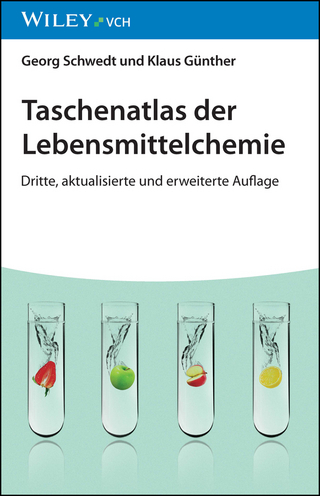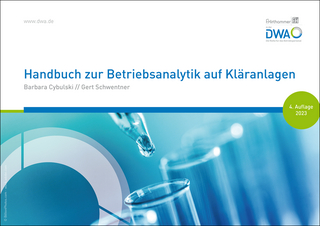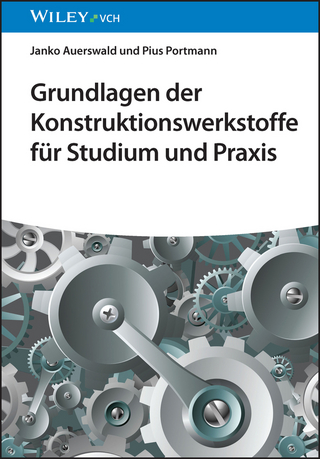
2D Nanomaterials for CO2 Conversion into Chemicals and Fuels
Royal Society of Chemistry (Verlag)
978-1-83916-311-1 (ISBN)
Since the discovery of graphene, two-dimensional nanomaterials including Transition metal dichalcogenides (TMDCs), Hexagonal Boron Nitride (hBN), non-layered compounds, black phosphorous, and Xenes with large lateral dimensions, have emerged as promising candidates for heterogenous electrocatalysis owing to their exceptional physical, chemical, and electronic properties. The tremendous opportunities of using 2D nanomaterials in electrochemical CO2 reduction arises from their unique properties and vast number of applications. Covering the fundamentals, properties, and applications, all aspects of 2D nanomaterial composites within carbon dioxide conversion are discussed. The industrial scale-up and new challenges that exist in the field of electrochemical reduction of carbon dioxide will also be presented. With chapters written by internationally recognized researchers, this state-of-the-art overview will serve the growing interest amongst academic and industrial researchers in understanding 2D nanomaterials composites, their hidden interfaces and nanoscale dispersion of the metal oxide with nanocomposites for specific uses in carbon dioxide conversion to chemicals for fuel applications. This book will be of interest to graduate students and researchers in materials science, energy, and environmental science, as well as those in industry.
Dr Kishor Kumar Sadasivuni is Group Leader of Smart Nanosolutions at the Center for Advanced Materials, Qatar University, Doha, Qatar. Dr. Sadasivuni was graduated from University of South Brittany, Lorient, France and currently he is working in Center for Advanced Materials, Qatar University. He has published more than 140 Journal papers, 12 book chapters and edited 7 books. He has around 10 years of experience in synthesis & characterization of nanoparticles and also in manufacturing nanocomposites for industrial applications. His areas of interest includes different types of nanocomposite fabrication, modifications, designs and their applications in lightweight technologies such as sensors, piezoelectric, actuators, energy storage, memory storage and flexible electronics. For the past ten years he has been a consultant providing solutions to numerous problems of the chemical, materials, polymer and plastic industries. He holds couple of patents in the field of engineering and material science. In 2017, he received Tyre & Rubber Industry Leadership Acknowledgement Awards (TRILA): Young Research Scholar of the Year. He has worked in many international laboratories including USA, Qatar, South Korea, Germany, Sweden, Italy and France. Dr. Karthik Kannan is currently working as a Research Assistant at the Center for Advanced Materials, Qatar University, Doha, Qatar. He did under graduation studies at Vivekananda College, Thiruvedakam, Madurai, Tamil Nadu, India. He did MSc. and PhD. from Bharathidasan University, Tiruchirappalli, Tamil Nadu, India. He has published more than 50 research articles in reputed journals. His current research interests are fuel cells, sensors, crystal growth, thin films, and nanocomposite materials for electronics, energy, environmental and biological applications. Dr. Aboubakr M. Abdullah, Qatar University is the hydro/Qatalum Chair Professor at Qatar University. He has 24 years of experience in academia and industry with more than 100 published peer-reviewed and conference proceedings articles in addition to one patent and one book chapter. Since being awarded his Ph.D. in Materials Science and Engineering from The Pennsylvania State University, USA, he has managed more than 10 research projects worth almost 5 million US dollars funded from different agencies inside and outside Qatar e.g. Qatar National Research Fund (QNRF), Hydro/Qatalum, Qatar Petroleum (QP) and Qatar Shell (QS). Furthermore, he supervises many young professionals at the Master and Ph.D. levels. Dr. Bijandra Kumar is currently working as Assistant Professor at Department of Technology, Elizabeth City State University, Elizabeth City, NC, 27909, USA and have established the research facility for studying CO2-to-fuels conversion. He had obtained his Ph.D. in material science and engineering from France in 2010. In last 10 years, he has gained extensive research experience in the field of sensors and renewable energy storage systems. In particular, his research activities are focused towards storing renewable energy in the form of chemical bonds via using electrochemical and photo-electrochemical process. He has been awarded Proof-Of-Concept innovation awards for his discovery. He has published more than 40 research articles in highly ranked journals of the world such as nature, science, energy and environmental science, ACS nano, Nanoletters, and Angewandte Chemie. He has registered as Co-PI 6 USA patents applications. His work has been cited more than 4155 times as listed at google scholar.
A Fundamental Approach Towards Carbon Dioxide Conversion to Chemicals and Fuels: Current Trends for CO2 Utilization Technologies;Synthesis and Characterization of Two Dimensional Materials;Synthesis of Two-dimensional Hybrid Materials, Unique Properties, and Challenges;CO2 Conversion to Chemicals and Fuel Cells Using Renewable Energy Sources;Two-dimensional Metal Oxide Nanomaterials for Electrochemical Conversion of CO2 into Energy-rich Chemicals;Two-dimensional Based Hybrid Materials for CO2-to-fuels Electrochemical Conversion CO2 Process;Two-dimensional Nanomaterials Design and Reactor Engineering of Different Methods for CO2 Electrochemical Conversion Process;Photoelectrochemical CO2 Conversion Through the Utilization of Non-oxide Two-dimensional Nanomaterials;Photocatalytic Conversion of CO2 into Energy-rich Chemicals by Two-dimensional Nanomaterials;Two-dimensional Based Hybrid Materials for Photocatalytic Conversion of CO2 into Hydrocarbon Fuels;Catalytic Thermal Conversion of CO2 to Fuels Using Two-dimensional Nanomaterials;Oxidative Dehydrogenation of Ethane to Ethylene Over Two-dimensional Nanomaterials Catalysts Using CO2;A Comparative Study of 0D, 1D, and 2D Nanocatalysts Towards CO2 Conversion;CO2 Capture and Conversion Using Different Renewable Sources;CO2 Capture by Functionalized Two-dimensional Nanomaterials;
Conversion of CO2 into Energy Dense Chemicals and the Commercialization Using Two-dimensional Nanomaterials as Catalysts
| Erscheinungsdatum | 17.08.2022 |
|---|---|
| Verlagsort | Cambridge |
| Sprache | englisch |
| Maße | 156 x 234 mm |
| Gewicht | 857 g |
| Themenwelt | Naturwissenschaften ► Chemie |
| Technik ► Elektrotechnik / Energietechnik | |
| Technik ► Maschinenbau | |
| ISBN-10 | 1-83916-311-9 / 1839163119 |
| ISBN-13 | 978-1-83916-311-1 / 9781839163111 |
| Zustand | Neuware |
| Haben Sie eine Frage zum Produkt? |
aus dem Bereich


